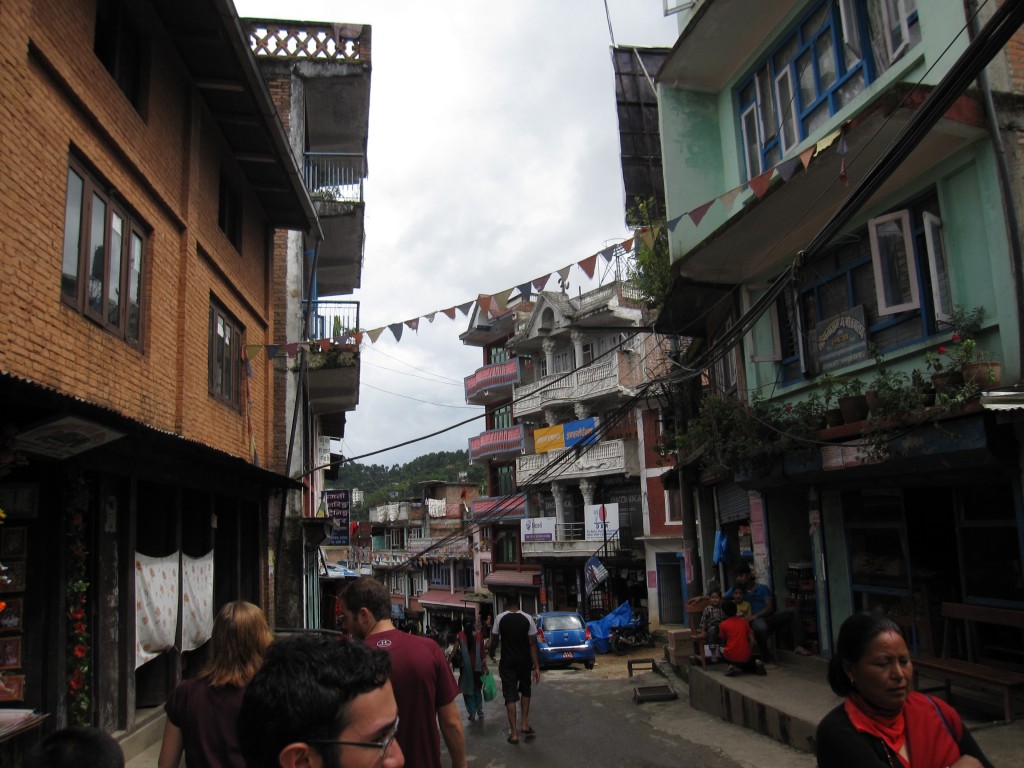A day in the life: Nepal pre-service training edition
Namaste!
Our pre-service training is organized under an immersive “cluster” model, where we have a central hub site for full group sessions, and 5 villages within an hour’s walking distance for small cluster language and immersive programs. Each cluster has four volunteers and one Language & Cultural Facilitator (LCF). We have classes 6 days a week, starting at 7AM most days. Our cluster classes focus on language and cultural integration. About once a week we meet as a full group with administrative staff at the hub site, where our sessions focus on big-picture information on Nepal, the Peace Corps strategy to development, and program training. A typical day in our clusters looks about like this:
5:30 – wake up, let out the goats and chickens, exercise a bit (if I’m awake enough…), drink tea, eat a couple “biscuits” (crackers), get ready for class. Tea’s a huge part of the culture here – it’s everywhere, offered by everyone at nearly all hours of the day. Most people prefer it with milk, but most families don’t have fresh milk all of the time so we have black tea pretty frequently too. My family adds “Horalicks” to it – a milk powder, vitamin supplement blend. And almost everyone uses way too much sugar!
7:00am – 2 hour language class. These are at our cluster sites, four students with one teacher. They’re rather intense – we’re taught between 30 to 100 new words a day, and at least one new verb tense a week. I admit my overwhelm…
9:00am – first Daal bhaat with host family; Study time; “shower” time. Yes, I eat with my hands, sitting cross-legged on a mat on the floor. It’s not too shabby, now that my feet are getting used to it and not falling asleep as much. “Showering” is really bucket-bathing, which consists of shutting myself in our charpi (toilet) room and using a small bucket to scoop water from a larger bucket. On really cold days, my family will plug in a small coil heater and pre-heat the big bucket of water a bit. But this is rare….

11:00am – 2 hour language class – again. This one generally goes a bit better for me – as I’ve gotten food in my belly and some time to wake up!
1:00pm – snack break. This varies a lot day-to-day. If I’m around the house, my “mom” usually makes me tea and biscuits. If I’m on my own I’ll either head to my favorite chiya pasal, who’s open windows provide a lovely view and breeze, or to the lone Indian place where I can get a couple delicious samosas (basically curried potato dumplings).
1:30pm – Usually: cultural lesson, sometimes with another cluster, or another language class. OR time to work on our community information gathering (lots of interviews – and tea…). When we meet at another village, we’re picked up in town then driven in the Peace Corps vehicle, lovingly known as “the defender.” It’s always a bumpy ride, but certainly makes the trips faster. I think most of us would rather walk if time allowed it!
4:30pm – free. Sometimes walk to market, or get sucked into afternoon tea and biscuits with a neighbor (they ALL invite you in, every time…). Living in the cluster which is closest to the market (a mere 15 minute walk), we’re able to go fairly frequently. I tend to spend my allowance on postage, fruit (I’m eating a pomegranate a day here!), clothing or chocolate!

7:00pm – second Daal Bhaat with host family
8:00pm – free time. Already pitch black outside, and town is shut down, so we’re pretty much confined to our houses. Sometimes I’ll watch a tad of TV with my family, as it’s always amusing – and sometimes they let me watch BBC world news for 20 minutes or so. Once in my room, I sometimes entertain my host brother with music or friendship bracelot making. Otherwise, I study and/or write journal/blog/letters. My family is asleep by 8 or 9pm. I try to be in bed around 11 (try being the key word there . . )



